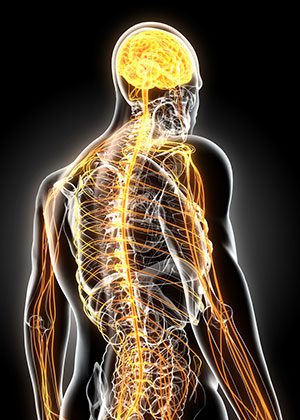
When you consider the sheer number of nerves in the human body, it makes sense that nerve damage and neuropathy symptoms could vary. Depending on the type of nerve affected and its function, your symptoms can range from mild to severe. In addition, since nerves travel to organs and muscles, as well, the symptoms and problems can be complex.
Some symptoms you might not even realize are actually neuropathy symptoms. For example, nerves that are part of your digestion system could lead to deficiencies and other problems. A blood pressure issue could be nerve related, as could a bladder function problem. Even your bowel movements and heart rate can be adversely affected due to nerve issues. These are all examples of autonomic nerves.
As for how the type of nerve affects neuropathy symptoms, afferent nerves are sensory nerves that carry signals from the brain. Afferent nerve issues will often present as numbness, burning, tingling, and pain. Efferent nerves are motor nerves that carry signals through the spinal cord to the rest of the body. An issue with these nerves can present as muscle weakness or, in severe cases, paralysis.
Unfortunately, neuropathy symptoms can often be overlooked as just another age-related issue that you can’t do much about. You should know that many symptoms can be improved. Many can even be resolved when the nerve damage isn’t permanent. Keep in mind that many nerves are repairable! Rather than suffer with pain or any symptoms, reach out to a professional for help.
At Complete Rehab, we would love the opportunity to assess your neuropathy symptoms and help you understand what has caused them. We rarely treat a patient whom we aren’t able to improve. You do not need a referral to schedule an appointment, and we accept Medicare. Reach out today to learn more.







